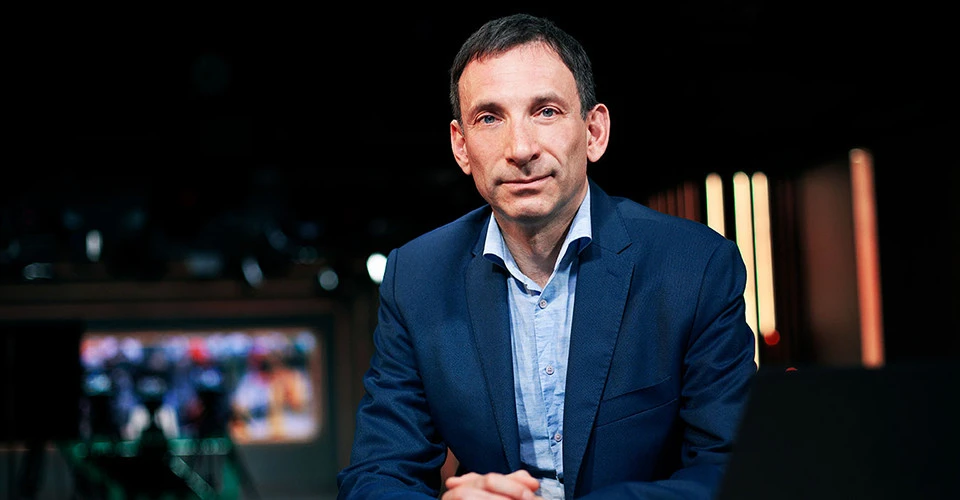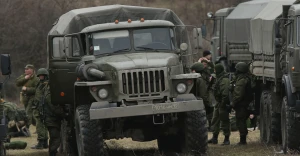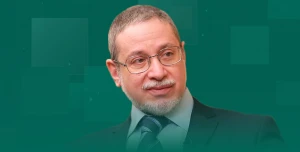
Putin's interview:main points
For the first time in several years, Vladimir Putin gave a major interview to foreign journalists. He has been answering their questions for three hours during the St. Petersburg Economic Forum
However, these statements by the Russian leader are difficult to characterize from a substantive point of view. First of all, from a psychological point of view. It is absolutely clear that the main issue of interest to Vladimir Putin is the continuation of his war with Ukraine. And the main question that interests journalists who have gathered to meet with the Russian president is whether Vladimir Putin will use nuclear weapons either in this war or in his own confrontation with the West.
And it is worth noting that Putin is trying to be contradictory in his answer to the most fundamental question that the world is currently concerned about.
On the one hand, he says that those who believe that in its confrontation with NATO member states, in its war with Ukraine, the Russian Federation will be ready to use nuclear weapons, are simply making up some nonsense. On the other hand, just a few minutes later, he advises journalists to re-read the Russian nuclear doctrine and convinces them that those who believe that Russia cannot be the first to use nuclear weapons are wrong. It turns out that it can, if it comes to threats to its sovereignty and territorial integrity.
However, the question now arises as to how to assess threats to the territorial integrity of the Russian Federation when Moscow can declare a part of the territory of another state its territory at any time? As it has already done with the annexed regions of Ukraine.
Putin also answers the question of how to end the war. Here, too, we hear a number of contradictory statements.
On the one hand, Putin continues to insist that the war can end at the negotiating table. As he has done repeatedly in recent weeks, he expresses serious doubts about the legitimacy of the current Ukrainian president and who Russia should negotiate with. On the other hand, he emphasizes that the way to end the fighting is for the US to stop supplying weapons to Ukraine. And if the Biden administration stops supplying weapons, it will all be over in a few weeks, Putin emphasizes.
Once again demonstrating that he is not so much interested in negotiations with the Ukrainian leadership, legitimate or illegitimate, but in victory on the battlefield.
Or at least the end of the war on Russia's terms. And Vladimir Putin has repeatedly set out these conditions, starting in 2022. And then we saw that there was no change in these conditions at all.
What is interesting about these statements of the Russian president is that he finally tried to explain what he means by the mysterious term "denazification", which Putin himself and Russian propagandists in the service of the Kremlin use at every opportunity. It turns out that denazification is the prohibition of Nazi propaganda at the state level. The fact that in Ukraine, the prohibition of Nazi propaganda at the state level has long been part of the country's legislation, Vladimir Putin obviously either does not know or does not want to know. And so it turns out that this is not about the incompetence of the Russian president, but about his desire to create ideological myths and then tell them not only to his own compatriots, but also to Western journalists, who thus become an instrument of his own propaganda.
On the one hand, Putin says that those who believe that Russia is ready for a direct clash with NATO member states are delusional, and on the other hand, he emphasizes that in response to strikes by Western weapons on sensitive targets in the Russian Federation, Russia will consider strikes on sensitive targets in Western countries. However, again in another paragraph, the response to these questions from Western journalists explains that it is not so much about direct Russian strikes as it is about the Russian Federation's readiness to supply weapons to regions from which it would be possible to strike sensitive targets in Western countries.
By and large, this indicates that the Kremlin is considering the possibility of using certain proxy armies to wage war against the West. Let's put it this way, as the Russian Federation's ally Iran will do in the war with Israel.
Iran is not engaged in a direct war with Israel using its own army, if only because it does not share borders with the Jewish state. All Iran can do is attack Israel with missiles and drones, but with the help of its own proxy armies, the terrorist organisations Hamas and Hezbollah, which also have good contacts with the political leadership of the Russian Federation and are supported by a certain part of Western societies. Iran is waging a real war against Israel with the help of actual armed militant forces. And perhaps this is the tactic that the Russian Federation has decided to choose in its confrontation with the civilized world. If these are not just plans, but an action plan already agreed upon by Putin and his closest associates, we may soon see the real results of the Russian president's intentions.
And, of course, Putin continues to engage in a propaganda campaign that he himself is organizing. He sends signals to Ukrainians that they have nothing to hope for, the war will be lost, and the only question is the number of casualties that the Ukrainian people will suffer in this confrontation with the Russian Federation.
But even here, Putin cannot calculate the real numbers. When he talks about the casualties of Ukraine and Russia, of course, the casualties of Ukraine are much greater than those of Russia. It's as if the Russian army is not attacking Ukrainian positions, but vice versa. He even makes a mathematical mistake in the proportion of these casualties. However, he promises Ukrainians and the world that the conscription age in Ukraine will be reduced to 18, and after that, the Americans will get rid of Ukrainian President Volodymyr Zelenskyy. Putin even predicts that this will happen in about a year after Zelenskyy makes all the unpopular decisions the United States needs.
The fact that the Ukrainian president is trying to avoid making any unpopular decisions will take years, not years, to make all the unpopular decisions for Ukrainian society. Vladimir Putin, of course, does not notice either. And it is clear why he does not notice. Unlike Zelenskyy, he is not an electoral politician, but a man who is at the helm of power with the help of force and propaganda. That is why Putin does not need the mood of citizens, he is not interested in what his own voters think, who, by and large, do not exist. He does not realize that Ukrainian politicians have to focus not on Americans and their wishes, but on how the Ukrainian voter will assess their performance in the next election, whenever it may be.
But these are also, I think, obvious things that remind us that when Putin starts to assess the Ukrainian situation, he is usually wrong precisely because he considers Ukraine to be a regular replica of the Russian Federation, only one that is controlled from Washington, not Moscow.
And by and large, if we summarize the results of this hour-long conversation between the Russian president and foreign journalists, we can say that his position has not changed in principle. That is why it is left to those who believe that Putin is ready for some kind of negotiations, that he is waiting for some kind of resolution of the situation at the front, that he needs to stop, at least for today, to understand what resources he has to continue the hostilities. Putin is literally overwhelmed by the war - he lives the war, enjoys the war, wants to talk about the war. Almost all of his conversations with journalists are not about Russia, its prospects, or its development, but about its confrontation with the civilized world. About further military actions, about further escalation of provocative, aggressive actions of the Russian Federation. And it is precisely this kind of Putin, who is determined to fight a war for many years, that should be perceived as a real factor that will affect the subsequent events in the 20s and 30s of this century. The time when Vladimir Putin will continue to lead the Russian Federation.
And, of course, to try to do everything possible to ensure that even after he leaves the political arena, the Russian regime, the regime of the Federal Security Service of the Russian Federation, the regime of the Chekists, remains the same, aggressive, ready for further wars and confrontation.
This is the future that we must look into and in which we must find a way out of this situation that Ukraine and the entire civilised world have found themselves in as a result of Russia's aggression and revanchist sentiments.
About the author. Vitaliy Portnikov, journalist, winner of the Shevchenko National Prize of Ukraine.
The editors do not always share the opinions expressed by the authors of the blogs.
- News














































